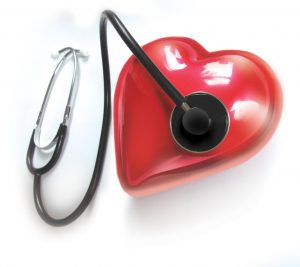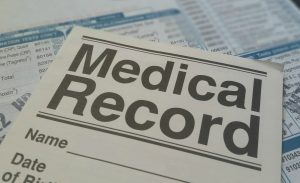Video Link: https://vimeo.com/293250088
Video Download: Click Here To Download Video
Video Stream: Click Here To Stream Video
Video Link: https://vimeo.com/293250534
Video Download: Click Here To Download Video
Video Stream: Click Here To Stream Video

There has been a lot of debate over the last decade regarding the effects of both Low-T and Testosterone Deficiency on the heart. Depending on the study and the manner in which the study was conducted, the results can come out quite differently.
A study published in Heart Rhythm, a peer-reviewed medical journal regarding cardiovascular health, provides strong evidence that a patient's Estradiol and Testosterone Levels are powerful indicators for sudden cardiac arrest, a lethal condition with a 95% mortality rate.
What researchers found was that men that experienced cardiac arrest had average Testosterone Levels which were significantly lower than normal. It was also discovered that patients with elevated Estradiol Levels were more likely to experience cardiac arrest regardless of gender.
What is Cardiac Arrest?
Cardiac Arrest is a condition in which the heart loses the ability to contract normally, which completely restricts blood flow. This prevents the body from circulating oxygen through the bloodstream which quickly leads to death if not treated.
Sudden Cardiac Arrest refers to Cardiac Arrest which occurs without warning. Because of the severity of the condition, under most circumstances, there is no way to provide effective treatment in time to save the patient, nor return the heart to working function in time to save the patient.
Cardiac Arrest as a whole has a lower mortality rate, though is still quite lethal because the condition often occurs in a hospital environment where immediate treatment can be provided. It's important to understand that Cardiac Arrest and Heart Attack are two specific conditions.
 Cardiac Arrest vs. Heart Attack
Cardiac Arrest vs. Heart Attack
A heart attack is a condition in which blood flow is restricted to the heart, but the muscle is still functional, whereas, in the case of Cardiac Arrest, blood is available for circulation, but the heart is not functioning properly, if at all.
Heart Attacks are referred to as medically and scientifically as Myocardial Infarctions. Both of these conditions are distinct from heart failure, a condition in which the heart is limited in its capacity to encourage healthy circulation but can still support the survival of the patient.
Because of the limited treatment options and the incredibly high mortality rate for Sudden Cardiac Arrest, there is an emphasis on medical research to find ways to reduce the risk of the condition in order to improve the long-term outcomes for at-risk patients.
How Widespread is Sudden Cardiac Arrest?
Sudden Cardiac Arrest is one of the leading killers of Americans and men and women all across the world. As many as 300,000 people die of Sudden Cardiac Arrest in the United States annually, and the number is as high as five million globally.
Why is Cardiac Arrest So Much Worse than Heart Attack?
The majority of heart attacks happen because the Coronary Artery becomes so blocked that blood cannot adequately reach the heart. In many cases, this is not a total blockage, although in some cases, such as in the case of clotting, this blockage can become total.
Because Heart Attacks don't always lead to total blockages, the patient can frequently survive long enough to receive treatment, because there is just enough blood circulation to keep them going. On the other hand, Cardiac Arrest completely stalls blood circulation, which must be treated in a matter of minutes before organ death starts to take place rapidly.
Also, Sudden Cardiac Arrest is a more complex issue than a heart attack. A heart attack is like having a fuel pump with a clog in it. If you can flush the tube and free the blockage, the engine will still function normally as fuel returns to circulation.
On the other hand, Sudden Cardiac Arrest is a problem with electrical signaling, and, outside of a clinical setting, or the lack of a defibrillator, blood circulation completely stops with no recourse.
Despite Decades of Research, Cardiac Arrest is Still Extremely Lethal
Generations of medical research have gone into trying to discover a means by which to effectively treat and resuscitate patients that experience sudden cardiac arrest, but survival rates are still particularly grim.
For patients with known heart issues, the best way to protect against cardiac arrest is with an ICD or implantable cardioverter-defibrillator. This device constantly monitors the heart, making sure that it sends electrical signals in its normal pattern. If something happens in which the heart falls out of pattern or goes into cardiac arrest, the ICD shocks the heart to restore normal rhythm patterns.
 Using Medical Records to Uncover Cardiac Arrest Risk Factors
Using Medical Records to Uncover Cardiac Arrest Risk Factors
Researchers were able to come to these conclusions regarding Testosterone, Estradiol, and Sudden Cardiac Arrest by analyzing data collected from the Oregon Sudden Unexpected Death Study, conducted in Portland, Oregon. The study spanned sixteen hospitals and collected comprehensive data regarding patients that passed unexpectedly.
The study was largely funded by the National Heart, Lung, and Blood Institute, and the research leader was Dr. Sumeet Chugh. By analyzing data collected from patients that died unexpectedly, researchers hoped to uncover genetic defects, triggers, and other risk factors for sudden cardiac arrest and heart death.
Although previous studies have linked Testosterone Deficiency and Elevated Estradiol to increased cardiovascular risk in other ways, this is the first study that provides evidence that abnormal hormone balance is correlated with sudden cardiac arrest.
Although the research needs to be corroborated through future studies, this is strong evidence that Hormone Balance with regard to Testosterone and Estrogen may have a protective effect on the heart which helps to prevent Sudden Cardiac Arrest.
Chugh and his associates accumulated health data from 149 men and women that died of Sudden Cardiac Arrest.
In order to establish control data, they also collected health information from 149 men and women that suffered from Coronary Artery Disease, but did not experience Sudden Cardiac Arrest.
Cardiac Arrest Risk and Testosterone in Men
What they discovered when analyzing the data was that men that died of Cardiac Arrest had average Serum Testosterone Concentration of 44 ng/dl, whereas patients that did not experience Cardiac Arrest had average levels of 54 ng/dl.
 Cardiac Arrest Risk and Estradiol in Men
Cardiac Arrest Risk and Estradiol in Men
With regard to Estradiol Levels in men, those that died from Cardiac Arrest had Serum Estradiol Concentrations of 68 pg/ml, whereas those that did not experience the fatal condition had estradiol levels of 52 pg/ml.
Cardiac Arrest Risk and Estradiol in Women
The link between Estradiol and Cardiac Arrest Risk was also notable in female patients as well. Women that experienced Cardiac Arrest had Serum Estradiol Levels of 54 pg/ml, and the controls had an average of 36 pg/ml.
What Does This Data Mean?
Based on this data, there is a definite link between Cardiac Arrest Risk and Testosterone Deficiency / Elevated Estradiol Levels. Of course, the evidence does not point out the source of the correlation.
It is equally feasible that conditions associated with Sudden Cardiac Arrest depress levels of Testosterone and increase Estrogen Levels in the bloodstream, and it is also very possible that Low-T and Elevated Estrogen Levels create a cardiovascular environment more conducive to Sudden Cardiac Arrest.
If Testosterone and Estrogen Levels directly contribute to Sudden Cardiac Arrest risk, then Testosterone Replacement Therapy for men and Estrogen Blockers for both sexes may be a means by which to improve cardiovascular outcomes and reduce the risk of Sudden Cardiac Arrest.
In the case that Testosterone Deficiency and Elevated Estrogen Levels are an indicator of Sudden Cardiac Arrest Risk, these levels may provide evidence that helps point future researchers in the right direction to discover further, direct causes of these lethal heart malfunctions.
Further still, Testosterone Therapy or Estrogen Blockers may still protect the heart by protecting against these other more direct causes of heart malfunction.
Could Hormone Therapy Improve Heart Health and Reduce Cardiovascular Risk?
Of course, there are still important questions that have to be more sufficiently answered with regard to Testosterone Therapy's effects upon the cardiovascular system, as well as those of Estrogen Blockers.
For example, some studies have shown that Testosterone Therapy increases the risk of heart attack, especially in the initial months of treatment. Most of these studies, however, suggest that the heart attack risk is caused by an associated increase in Estradiol Levels caused by the Testosterone Therapy itself, or the result of Polycythemia, which increases the risk of blood clotting.
 In both of these cases, Testosterone itself still seems to have a protective effect upon cardiovascular function, but it's benefits are suppressed by the effects of Polycythemia and increased Estradiol Levels.
In both of these cases, Testosterone itself still seems to have a protective effect upon cardiovascular function, but it's benefits are suppressed by the effects of Polycythemia and increased Estradiol Levels.
Both of these side-effects can be effectively treated, however, which still provides hope that Testosterone Therapy can be an effective weapon at the disposal of medical doctors in their efforts to protect the hearts of their patients.
Estrogen Blockers can keep Estradiol Levels in check, suppressing the conversion process which causes excess Testosterone from being converted into Estrogen. Polycythemia can also be effectively treated as well, in this case, without medication.
The best treatment to keep Red Blood Cell Count in check is simply blood donation.
Contact Us Today For A Free Consultation

- Adverse Effects of Testosterone Therapy in Adult Men: A Systematic Review and Meta-Analysis [Last Updated On: July 2nd, 2024] [Originally Added On: June 4th, 2010]
- Low Testosterone Levels, Foods That Increase Testosterone Levels wwwSelf-Improvement-Bible.com [Last Updated On: November 12th, 2023] [Originally Added On: May 30th, 2011]
- Low Testosterone in Men: The Next Big Thing in Medicine! - Abraham Morgentaler, MD [Last Updated On: May 7th, 2023] [Originally Added On: June 3rd, 2011]
- How To Determine Testosterone Levels By Looking At Your Ring Finger [Last Updated On: December 7th, 2017] [Originally Added On: June 30th, 2011]
- Prolab Horny Goat Weed Testosterone Booster Supplement Review [Last Updated On: November 23rd, 2023] [Originally Added On: July 19th, 2011]
- The Healthy Skeptic: Products make testosterone claims [Last Updated On: August 13th, 2024] [Originally Added On: September 11th, 2011]
- How To Naturally Increase Testosterone [Last Updated On: November 21st, 2023] [Originally Added On: September 28th, 2011]
- Testosterone Production - Video [Last Updated On: November 25th, 2024] [Originally Added On: November 20th, 2011]
- Testosterone makes us less cooperative and more egocentric, study finds [Last Updated On: January 23rd, 2018] [Originally Added On: February 1st, 2012]
- Testosterone makes us less cooperative and more egocentric [Last Updated On: January 24th, 2018] [Originally Added On: February 1st, 2012]
- Too much testosterone makes for bad decisions, tests show [Last Updated On: April 30th, 2025] [Originally Added On: February 1st, 2012]
- Today in Research: Testosterone's Negative Effects; Diet Soda Death [Last Updated On: January 2nd, 2018] [Originally Added On: February 2nd, 2012]
- Testosterone drives ego, trips cooperation [Last Updated On: December 2nd, 2017] [Originally Added On: February 4th, 2012]
- FDA approves BioSante/Teva's testosterone gel [Last Updated On: April 28th, 2025] [Originally Added On: February 15th, 2012]
- 'Manly' Fingers Make For Strong Jawline in Young Boys [Last Updated On: December 1st, 2017] [Originally Added On: February 15th, 2012]
- Teva, BioSante Win U.S. Approval for Testosterone Therapy [Last Updated On: December 10th, 2017] [Originally Added On: February 15th, 2012]
- BioSante Gains on Approval of Testosterone Gel: Chicago Mover [Last Updated On: January 8th, 2018] [Originally Added On: February 16th, 2012]
- BioSante soars following drug approval from FDA [Last Updated On: December 26th, 2017] [Originally Added On: February 16th, 2012]
- Antibodies, Not Hard Bodies: The Real Reason Women Drool Over Brad Pitt [Last Updated On: December 24th, 2017] [Originally Added On: February 21st, 2012]
- Almark Publishing Releases Book From Mark Rosenberg, M.D. Revealing Natural Discoveries Associated With Low ... [Last Updated On: May 3rd, 2025] [Originally Added On: February 28th, 2012]
- Testosterone Replacement Clinic Comes to Kansas City with Potential to Help Thousands of Men [Last Updated On: May 2nd, 2025] [Originally Added On: March 1st, 2012]
- Study examines the relative roles of testosterone and its metabolite, dihydrotestosterone in men [Last Updated On: December 2nd, 2017] [Originally Added On: March 7th, 2012]
- The Role of 5{alpha}-Reductase Inhibition in Men Receiving Testosterone Replacement Therapy [Editorial] [Last Updated On: December 21st, 2017] [Originally Added On: March 7th, 2012]
- Effect of Testosterone Supplementation With and Without a Dual 5{alpha}-Reductase Inhibitor on Fat-Free Mass in Men ... [Last Updated On: January 3rd, 2018] [Originally Added On: March 7th, 2012]
- Why We Like Men Who Can Keep Their Cool [Last Updated On: December 30th, 2017] [Originally Added On: March 7th, 2012]
- Testosterone And Heart Health [Last Updated On: May 1st, 2025] [Originally Added On: March 10th, 2012]
- Your Life on Testosterone: Overly Sure of Yourself, Unwilling to Listen [Last Updated On: November 25th, 2018] [Originally Added On: March 15th, 2012]
- Mayo Clinic-TGen study role testosterone may play in triple negative breast cancer [Last Updated On: December 8th, 2017] [Originally Added On: March 23rd, 2012]
- A dose of testosterone might not cure what ails you [Last Updated On: January 23rd, 2018] [Originally Added On: March 25th, 2012]
- Green tea could aid athletes hide testosterone doping [Last Updated On: December 16th, 2017] [Originally Added On: March 25th, 2012]
- TGen Study Role Testosterone May Play in Triple Negative Breast Cancer [Last Updated On: December 6th, 2017] [Originally Added On: March 26th, 2012]
- Testosterone low, but responsive to competition, in Amazonian tribe [Last Updated On: January 23rd, 2018] [Originally Added On: March 28th, 2012]
- Competition-linked bursts of testosterone are fundamental aspect of human biology, study of Amazonian tribe suggests [Last Updated On: December 25th, 2017] [Originally Added On: March 28th, 2012]
- Playing football boosts testosterone levels by 30 percent! [Last Updated On: February 4th, 2024] [Originally Added On: March 28th, 2012]
- Testosterone low, but responsive to competition, in Amazonian tribe -- with slideshow [Last Updated On: December 9th, 2017] [Originally Added On: March 28th, 2012]
- The benefits of testosterone pellet therapy [Last Updated On: January 24th, 2018] [Originally Added On: March 29th, 2012]
- Low testosterone levels cause health woes [Last Updated On: November 25th, 2018] [Originally Added On: March 30th, 2012]
- Heart Failure Patients Getting Relief from Testosterone Supplements [Last Updated On: May 5th, 2025] [Originally Added On: April 21st, 2012]
- Study Finds Fatherhood Suppresses Testosterone [Last Updated On: May 4th, 2025] [Originally Added On: May 3rd, 2012]
- Low testosterone levels could raise diabetes risk for men [Last Updated On: January 26th, 2018] [Originally Added On: May 5th, 2012]
- Why low testosterone may increase your risk of diabetes [Last Updated On: November 25th, 2024] [Originally Added On: May 5th, 2012]
- Diabetes link to low testosterone [Last Updated On: November 25th, 2024] [Originally Added On: May 5th, 2012]
- Testosterone Linked to Weight Loss in Obese Men [Last Updated On: January 2nd, 2018] [Originally Added On: May 11th, 2012]
- Testosterone may help weight loss [Last Updated On: November 25th, 2024] [Originally Added On: May 11th, 2012]
- Testosterone-fuelled infantile males might be a product of Mom's behaviour [Last Updated On: December 25th, 2017] [Originally Added On: May 11th, 2012]
- Testosterone-fueled infantile males might be a product of Mom's behavior [Last Updated On: January 6th, 2018] [Originally Added On: May 11th, 2012]
- Testosterone supplements may help obese men lose weight [Last Updated On: January 5th, 2018] [Originally Added On: May 11th, 2012]
- Testosterone supplements 'can help men lose their middle-aged spread' [Last Updated On: November 25th, 2024] [Originally Added On: May 12th, 2012]
- Some doctors question safety of testosterone replacement therapy [Last Updated On: January 20th, 2018] [Originally Added On: May 15th, 2012]
- Health Canada Approves New Testosterone Topical Solution for Men [Last Updated On: May 15th, 2025] [Originally Added On: May 15th, 2012]
- Environment trumps genes in testosterone levels, study finds [Last Updated On: May 8th, 2025] [Originally Added On: May 15th, 2012]
- Global Testosterone Replacement Therapy (TRT) Industry [Last Updated On: May 7th, 2025] [Originally Added On: May 21st, 2012]
- Testosterone Fuels Boom, Swindler Sows Panic: Top Business Books [Last Updated On: January 13th, 2018] [Originally Added On: June 2nd, 2012]
- Increase in testosterone drug use [Last Updated On: April 12th, 2018] [Originally Added On: June 4th, 2012]
- Testosterone Promotes Agression Automatically [Last Updated On: January 29th, 2018] [Originally Added On: June 9th, 2012]
- Testosterone shown to help sexually frustrated women [Last Updated On: January 27th, 2018] [Originally Added On: June 9th, 2012]
- Research and Markets: Testosterone Replacement Therapy (TRT) - Global Strategic Business Report [Last Updated On: December 23rd, 2017] [Originally Added On: June 12th, 2012]
- Proposed testosterone testing of some female olympians challenged by Stanford scientists [Last Updated On: January 30th, 2018] [Originally Added On: June 14th, 2012]
- Testosterone Makes Bosses Into Jerks, Says Paul Zak [Last Updated On: January 8th, 2018] [Originally Added On: June 14th, 2012]
- Testosterone Therapy: A Misguided Approach to Erectile Dysfunction (ED) [Last Updated On: May 10th, 2025] [Originally Added On: June 20th, 2012]
- New drugs, new ways to target androgens in prostate cancer therapy [Last Updated On: January 8th, 2018] [Originally Added On: June 20th, 2012]
- Long-term testosterone treatment for men results in reduced weight and waist size [Last Updated On: January 19th, 2018] [Originally Added On: June 23rd, 2012]
- Declining testosterone levels in men not part of normal aging, study finds [Last Updated On: December 27th, 2017] [Originally Added On: June 23rd, 2012]
- Low testosterone not normal part of aging [Last Updated On: December 22nd, 2017] [Originally Added On: June 25th, 2012]
- Testosterone Does Not Necessarily Wane With Age [Last Updated On: December 6th, 2017] [Originally Added On: June 25th, 2012]
- Overweight men can boost low testosterone levels by losing weight [Last Updated On: December 10th, 2017] [Originally Added On: June 25th, 2012]
- Testosterone-replacement therapy improves symptoms of metabolic syndrome [Last Updated On: January 14th, 2018] [Originally Added On: June 26th, 2012]
- Testosterone therapy takes off pounds [Last Updated On: December 11th, 2017] [Originally Added On: June 26th, 2012]
- Weight loss may boost men's testosterone [Last Updated On: May 9th, 2025] [Originally Added On: June 27th, 2012]
- Low Testosterone? Study finds age may not be to blame [Last Updated On: May 12th, 2025] [Originally Added On: July 1st, 2012]
- Do you have low testosterone? [Last Updated On: December 15th, 2017] [Originally Added On: July 8th, 2012]
- Wall Streeters Buying Testosterone for an Edge [Last Updated On: May 11th, 2025] [Originally Added On: July 12th, 2012]
- Beefy Wall Street Traders rub on testosterone [Last Updated On: February 20th, 2024] [Originally Added On: July 12th, 2012]
- Tale of two runners exposes flawed Olympic thinking [Last Updated On: December 23rd, 2024] [Originally Added On: July 19th, 2012]
- Genetic markers for testosterone and estrogen level regulation identified [Last Updated On: January 6th, 2018] [Originally Added On: July 20th, 2012]
- BUSM researchers identify genetic markers for testosterone, estrogen level regulation [Last Updated On: December 18th, 2017] [Originally Added On: July 20th, 2012]
- DRS. OZ AND ROIZEN: How to reap the benefits of normal testosterone levels [Last Updated On: December 23rd, 2024] [Originally Added On: July 21st, 2012]
- How Testosterone Drives History [Last Updated On: December 24th, 2024] [Originally Added On: July 22nd, 2012]
- Testosterone replacement is "fountain of youth" for men [Last Updated On: January 3rd, 2018] [Originally Added On: July 27th, 2012]
- Pill for low testosterone in men heads for phase II clinical trials [Last Updated On: December 31st, 2017] [Originally Added On: August 2nd, 2012]
Word Count: 1513




















